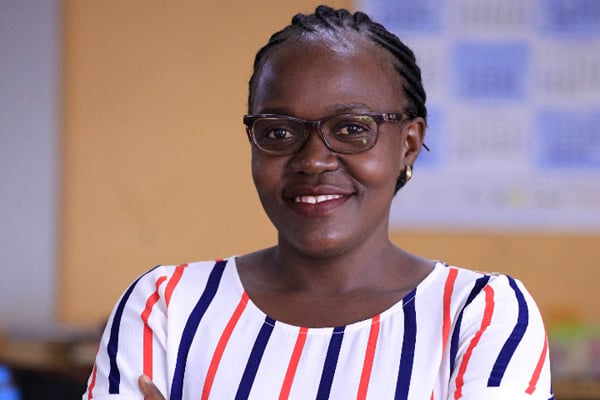Maj Kiggundu murder: Suspects want case dismissed

Some of the suspects in the murder of Major Muhammad Kiggundu at the International War Crimes Division in Kampala April 19, 2022. PHOTO/ABUBAKER LUBOWA
What you need to know:
- In the absence of the state prosecutor, Justice Kabanda told the accused persons to file their application by July 15.
Eight Tabliq Muslims facing murder charges over the brutal killing of Sheik Maj Mohammad Kiggundu and his bodyguard have asked court to dismiss the case.
Through their lawyer Geoffrey Turyamusiima, the group Wednesday asked the International Crimes Division of the High Court Justice Elizabeth Kabanda to allow them file an application for charges against them to be dropped.
“Your honor with your permission we seek leave of court to file our application to dismiss all charges against the accused persons as the state has failed to prosecute them,” Mr Turyamusiima said.
He added: “Prosecution has failed to fully varnish us with the evidence that they tend to rely on as per court’s directives.”
In the absence of the state prosecutor, Justice Kabanda told the accused persons to file their application by July 15.
The suspects are Sheikh Yahaya Ramathan Mwanje,50, who was the acting Tabliq sect leader at Nakasero Mosque in Kampala, Muhammad Buyondo, alias Matiya, 43, a boda boda rider, Abdul Wahabu Sedegeya, 37, boda boda rider and Musa Sekandi alias Masanafu, 42, a businessman in Masanafu a Kampala suburb.
Others are Yusuf Nyanzi Siraj alias Fred Sentamu, Jibril Kalyango alias Abu Aisha, Bruhan Kalyango Balyejusa and Noordin Lutaaya alias superman. They were charged with two counts of murder.
Prosecution states that the accused and others still at large shot and killed Sheikh Major Kiggundu and his body guard Sgt Steven Mukasa at Masanafu Trading Centre in Rubaga Division.
On November 26, 2016, Maj Kiggundu and his bodyguard, Sgt Mukasa, were shot dead by assailants who were riding on two motorcycles the city suburb as he was heading to Mengo for a radio talk show.
It is prosecution's evidence that “the suspects were part of a group called "Kampala 17" which was known to have links with the Allied Democratic Forces (ADF) rebel group that was allegedly terrorizing Kampala.”
Court documents further indicate that investigations by the police revealed that prior to this incident, there was a serious grudge and conflict in the Tabliq Muslim community over the leadership and management of some mosques and projects in the country.
“As such factions emerged with some Muslim clerics being branded “bakafiri” and threatened to be killed, fliers with the list of the “bakafiri” were generated and circulated to the public including the name of Sheikh Kiggundu,” reads in part of the prosecution evidence.
It is further stated that Sheikh Mwanje had on several occasions threatened to kill Maj Kiggundu and other Muslim clerics opposed to his faction and leadership. Such threats were recorded and reported to several authorities with the deceased also informing his relatives.




